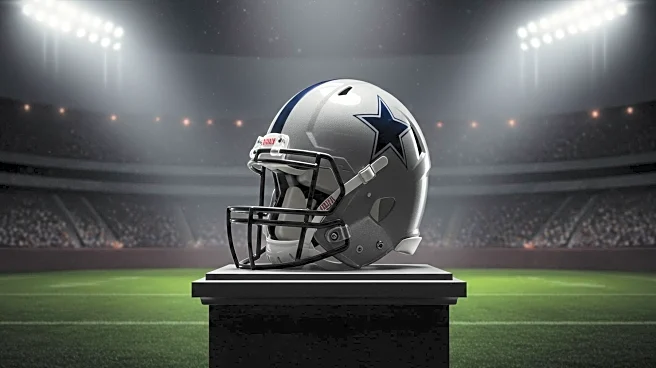What's Happening?
Myles Ellis, a senior at Homewood-Flossmoor High School, is set to make a significant impact on the football field this season after recovering from a broken ankle. Ellis, who missed the basketball season and part of the track season due to his injury, has been working hard to overcome the psychological barriers associated with his injury. He has been using the cleats he wore during the injury to help him mentally move past the setback. Ellis, committed to North Dakota State, is known for his speed and agility, and Coach Troy McAllister praises his ability to make plays in space. The new coaching staff at H-F, led by McAllister, is focused on accountability and has introduced an exciting offense that aims to utilize Ellis's skills effectively.
Why It's Important?
Ellis's return is crucial for the Homewood-Flossmoor Vikings as they look to rebuild under new leadership. His experience in high-level competitions, including state championships in track and basketball, brings a winning mentality to the team. Ellis's decision to commit to North Dakota State highlights the program's reputation for developing players for the NFL, which could influence other athletes considering their college options. His recovery and performance could inspire other athletes facing similar challenges, emphasizing the importance of mental resilience in sports.
What's Next?
As the football season progresses, Ellis will be a key player to watch, potentially leading the Vikings to a successful season. His performance could attract attention from NFL scouts, given North Dakota State's track record of producing professional players. The new coaching staff's approach may lead to a cultural shift within the team, fostering a more disciplined and accountable environment. Ellis's journey could also serve as a case study for sports psychologists and coaches focusing on athlete recovery and mental health.
Beyond the Headlines
Ellis's story underscores the broader conversation about athlete mental health and the psychological impact of injuries. His proactive approach to overcoming mental barriers could influence coaching strategies and athlete support systems. Additionally, his commitment to North Dakota State over larger programs highlights the importance of player development and career prospects in college sports decisions.











